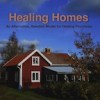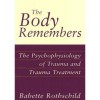Ritual Abuse
Ritual Abuse
On The Web
End Ritual Abuse – www.endritualabuse.org
This site provides articles, resources, and links to information and support.
Extreme Abuse Survey – www.extreme-abuse-survey.net
Results, findings, questionnaires and presentations. More than 750 pages of documentation.
Mind Justice – www.mindjustice.org
An extensive and well-organized site on with articles, source material, and position papers on mind control, torture, and non-lethal weapons
Ritual Abuse, Ritual Crime and Healing – www.ra-info.org
Information for Survivor’s, Therapists and Others.
Ritual Abuse Network Scotland – www.rans.org.uk
An informative and useful resource for anyone connected with ritual abuse anywhere in the world, be they survivors, counsellors, or just a concerned friend.
Ritual Abuse and Satanic Ritual Abuse Evidence and Journal Articles – http://childabusewiki.org/index.php?title=Satanic_Ritual_Abuse_Evidence_and_Journal_Articles
S.M.A.R.T. (Stop Mind Control and Ritual Abuse Today): www.ritualabuse.us
Many articles, transcripts of speeches, information on up-coming conferences, plus all back issues of the newsletter.
Survivorship – www.survivorship.org
For survivors of ritual abuse, mind control and torture and their allies.
In Print
Morris, M. (1982). If I Should Die Before I Wake. Black Swan Books.
Noblitt, R. and Perskin Noblitt, P. (2008). Ritual Abuse in the Twenty First Century: Psychological, Forensic, Social and Political Considerations. Robert. D. Reed Publishers.
Ross, C. (1995). Satanic Ritual Abuse: Principals of Treatment. University of Toronto Press.
Ryder, D. (1992). Breaking the Circle of Satanic Ritual Abuse: Recognizing and Recovering from the Hidden Trauma. Compcare Publishers.
Scott, S. (2001). The Politics and Experience of Ritual Abuse: Beyond Belief. Open University Press.
Sinason, V. (1994). Treating Survivors of Satanist Abuse. Routledge.
Smith, M. (1993). Ritual Abuse. What It Is, Why It Happens, How to Help. Harper: San Francisco.


